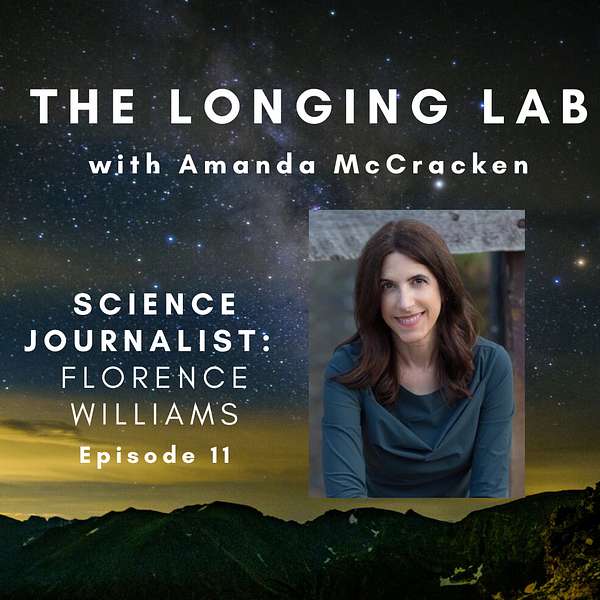
The Longing Lab
Do you ever find yourself so fixated on longing that you can’t enjoy the present? Longing for a lover, an exotic destination, a lost loved one, or a past time in your life? The Longing Lab takes a deeper look at the science of longing and the culture that drives us to long for what we don’t have. You can expect insightful conversations with individuals uniquely qualified to talk about longing. Host, Amanda McCracken, has written or spoken about her own addiction to longing in national publications like the New York Times, Washington Post, & the BBC. The goal of the Longing Lab is to inspire individuals to make positive changes in their lives. Look for her book, When Longing Becomes Your Lover (Hachette), in February 2026!
The Longing Lab
Journalist Florence Williams on the science of heartbreak and healing nature of awe
Episode 11: Award-winning science journalist & author Florence Williams shares insights she learned during her journey through the heartbreak of her divorce and writing a memoir about it. She discusses the physical impacts heartbreak has on our bodies and how our openness to beauty aids in our recovery.
When her 25-year marriage ended, Florence Williams said she felt “axed in the heart” and like her body had been “plugged into an electrical socket.” Her latest award-winning book, Heartbreak: A Personal and Scientific Journey, chronicles the exploration of her own heartbreak and that of others. Florence’s writing has appeared in the New York Times, National Geographic, Outside, and numerous other outlets. She’s also the author of The Nature Fix: How Nature Makes Us Happier, Healthier, and More Creative. Florence is a certified forest-therapy guide and leads retreats focused on building a nurturing and reciprocal relationship with nature.
Connect with Florence on Instagram @florence99 or learn more about her on her website http://www.florencewilliams.com/
In this episode, (in order) we talked about…
*Different kinds of heartbreak: personal, geographical and collective
*How our cells listen for loneliness and other ways our bodies respond to heartbreak
*Why people who go through divorce have an increased risk for several diseases
*The difference between how her body reacted to her mom’s death & her divorce
*How long it takes to recover from heartbreak
*Why it’s important to spend enough time healing after trauma like heartbreak
*The Museum of Broken Relationships & ritualizing our breakups
*How our openness to beauty makes us more resilient and how to micro-dose on awe
*The process of writing her book as she was grappling with her heartbreak
Quotes:
“If you feel lonely and unsupported, your nervous system is going to respond to that by pumping out more inflammation….Our bodies know we are more at risk for threat when we feel lonely.”
“There was no one thing that made me feel instantly better. Research shows on average it takes four years for people who are divorced to return to baseline health…And for some people it’s going to take longer…There’s no one way to grieve.”
“One of the myths I bust in the book is that you shouldn’t start another relationship too soon or that you need to heal before you go back out there in the dating world. I don’t think that’s true. You never really get to a point where you are fully healed, so you might as well do that healing with someone else if you can find someone else who is going to be supportive.”
“The beauty in life is in the growth that happens after trauma. When we can open our hearts back up, then we can realize our full humanity."
“We know from brain imaging studies that people who are more prone to awe also have more connections in different parts of their brains. There’s some ability they have to take their own personal pain and put it in perspective. That really does help them get through the suffering.”
“People who are parts of our lives, they’re always going to be parts of our lives. You don’t just hit a switch and they’re gone.”
Order Florence’s book, Heartbreak: A Personal & Scientific Journey here
Learn more about the Museum of Broken Relationships here
Let's connect: www.amandajmccracken.com